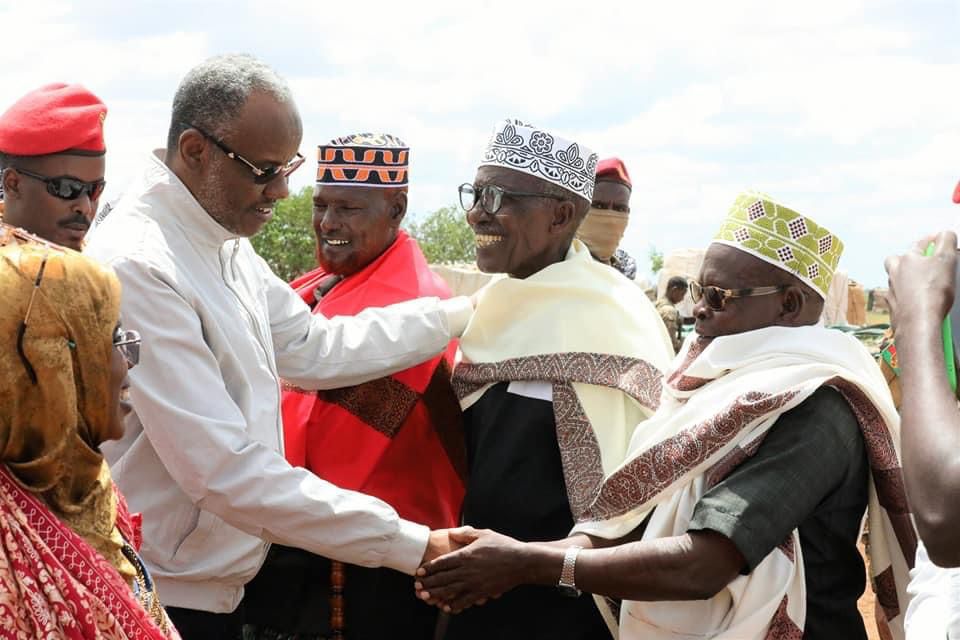District council formation in Burhakaba, Somalia launched with emphasis on inclusion

Burhakaba district in the Bay region of Somalia celebrated the launch of a process to form their district council, a critical step in forming inclusive local governance to support peace and development in the region
The President of Southwest State of Somalia, H.E Abdiaziz Hassan Mohamed Laftagaren, graced the launch event on June 11th 2023 of the district council formation process for Burhakaba district in order to improve the provision of essential service delivery to the people in Burhakaba.
The district stakeholders welcomed the initiative, citing it as an opportunity to advance the long-awaited decentralization effort in the district. “Whereas the district government has been an exclusive institution in the past, the initiative district council brings needed local representation.”
“The population of Burhakaba will no longer feel the pinch due to the lack of inclusive administration as we are set to elect a council that can hopefully advance our mutual interests,” said Muno Mohamed, the Chair of Burhakaba district.
H.E. President Abdiaziz Hassan Mohamed Laftagaren echoed similar thoughts further stating that “[the] Burhakaba population should take note of other districts such as Hudur, Barawe, Dinsoor and Bardale that have a well-functioning district administration.”
The path to one person, one vote
The President, speaking on the monumental achievement for the district, explained the three phases of the council formation. The first phase is where the Ministry of Interior nominates the district administration; phase two sees a section of key community representatives electing the council members through a series of consultative and awareness raising process; and phase three will involve a voting process to elect one representative at each district in the state before the end of next year.
“We want to have an accountable district administration that can help the population of Somalia to achieve the planned second phase of liberation efforts that would eventually set the country free from the shackles of Al-Shabab and through which we can after achieve meaningful development,” continued the President.
Inclusive governance through meaningful women’s representation
While speaking on women’s inclusion to the council members, the Minister of the Interior Southwest State of Somalia, Mr. Abdullahi, shared, “We can no longer define inclusivity as just having few clan members at the district administration, but rather we want to see women at the decision-making table through ensuring 30 per cent quorum for women representation at Burhakaba district council. “
Mr. Abdullahi’s counterpart from the Ministry, the Director General, Mr. Mustafa, also emphasized the need to have meaningful female representation.
“My specific request goes to our respectable community elders, we should no longer be discussing the inclusion of women without tangible progress and as such we aim to have women incorporated to this crucial process throughout. As such, Burhakaba should follow the path of Dinsoor which had 50 per cent female council members “
The President reiterated the stakeholders’ consensus on the need to have women and youth in the decision-making process. The Somali authorities and communities lead the council formation process of Burhakaba with funding from the Ministry of Foreign Affairs for Finland via the MIDEEYE project, supported by The Network for Religious and Traditional Peacemakers and implemented by FCA Somalia.
FCA supports the formation of inclusive local governance through district council formation in line with the Wadajir National Framework and National Reconciliation Framework. Together with the Network for Religious and Traditional Peacemakers, we work closely with the Somali State and Federal Government, local authorities, communities, and civil society partners.
Text: Fatima Abshir